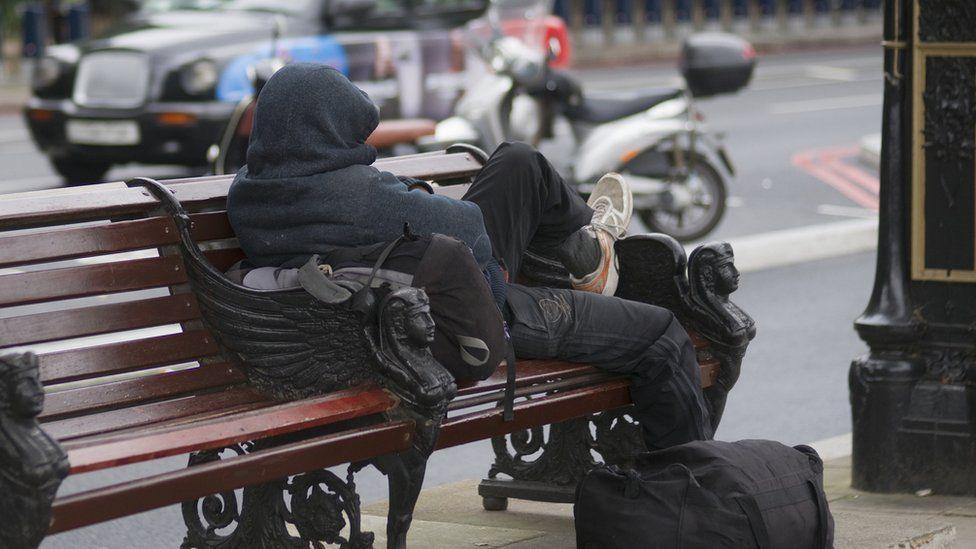Homelessness: Numbers of rural rough sleepers on the rise
- Published
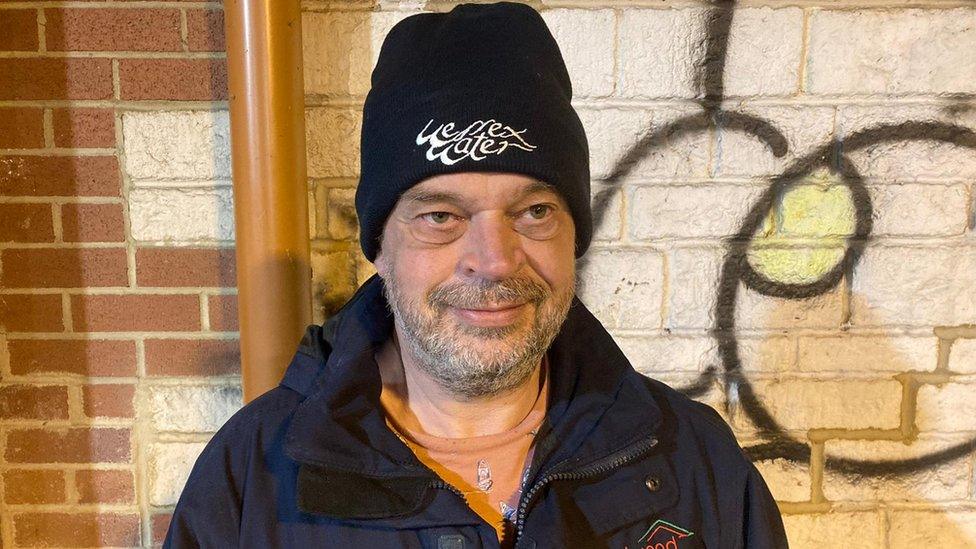
Brian Tubb from Chippenham describes himself as a former member of Wiltshire's "hidden homeless"
A homeless charity has said it has seen a sharp rise in the numbers of rural rough sleepers.
Doorway Wiltshire said it was "seeing new people every week" compared to two years ago, when it was monthly.
Brian Tubb spent 13 years sleeping rough between Chippenham and the outskirts of Malmesbury, but said he was too ashamed to ask for help.
He believes that due to the cost of living crisis there will be "more and more people out on the streets".
Mr Tubb has since turned his life around with the help of the charity.
But he spent the evening sleeping on the streets of Chippenham once again, on the coldest night of the year so far, to share his experience with BBC Radio Wiltshire.
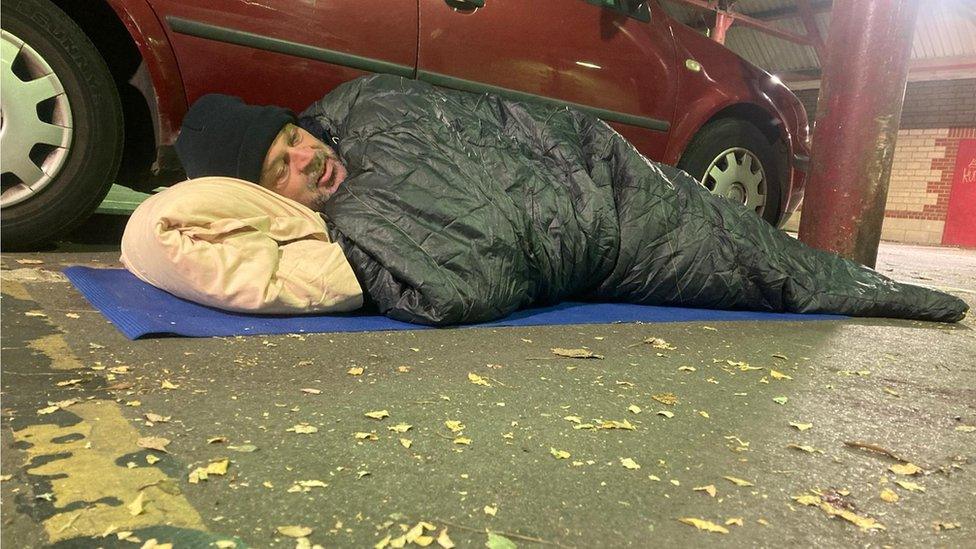
Mr Tubb settled into a night on the cold concrete alongside the rubbish and the pigeons in Bath Road car park
Mr Tubb, who is from Chippenham, said he was "scared as anything" when he became homeless.
"Two to three days just walking about," he said.
"I didn't want to say that I had messed up and this was the situation I'm in."
Much of rural homelessness is hidden and not picked up in official statistics, according to the Rural Services Network.
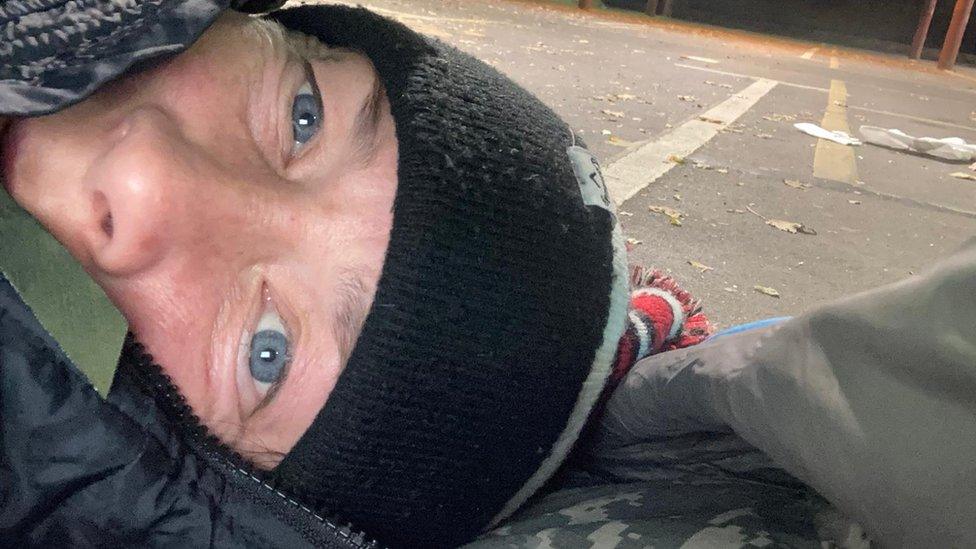
BBC Radio Wiltshire's Kelly Morgan also slept in the car park while she interviewed Mr Tubbs
Chief executive of Doorway Wiltshire, Jo Kitching, said: "In the past couple of weeks people have found us who have been rough sleeping for years.
"We didn't know they were there and they didn't know we were here because it's the nature of the place."
Mr Tubb said he used to have to walk nearly 17 miles "just to get a breakfast and get a bag of food and that would see me through".
"And more importantly showers," he added.
"Everybody likes to feel clean - people look at you differently if you are clean and tidy. It's better for your mental health too."
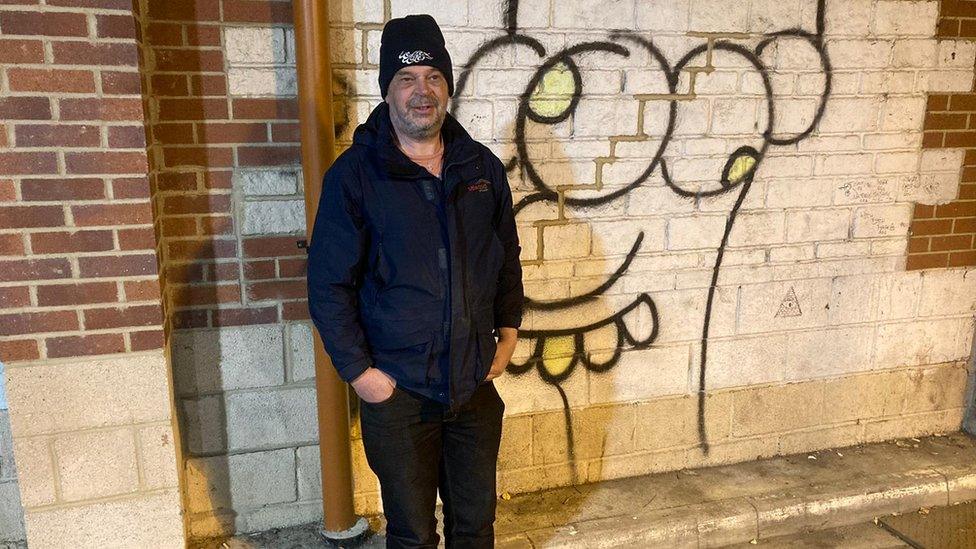
"We need to be more aware of what's going on and I think at any time this could be anybody on the streets," said Mr Tubb
According to Doorway Wiltshire, the primary reason for homelessness is relationship breakdown.
Ms Kitching said: "We see people rough sleeping every session now.
"Two years ago it used to be maybe one person a month might be new to us but now we're seeing new people every week."
Mr Tubb said the cost of living crisis will lead to an increase in rural homelessness.
"With the way that fuel prices are going on, your gas and electric and things like that, it's going to eventually get onto people not being able to afford mortgages, not being able to afford rents, and eventually you are going to see more and more people out on the streets," he said.
"If someone is walking past a homeless person you have got to look at in a different way.
"Don't walk past and think 'that will never be me'. Walk past and think 'what if that was me?'"

Follow BBC West on Facebook, external, Twitter, external and Instagram, external. Send your story ideas to: bristol@bbc.co.uk , external
Related topics
- Published30 May 2021
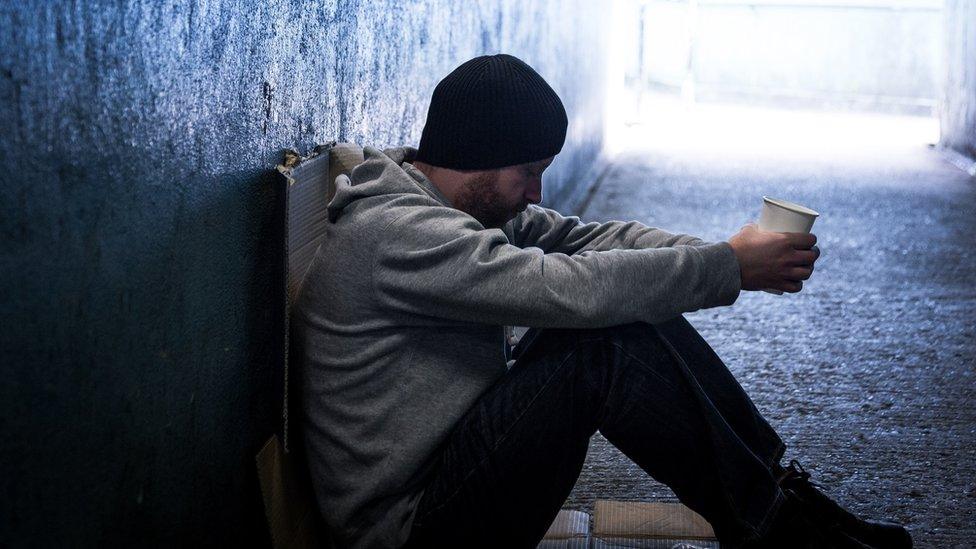
- Published5 October 2022
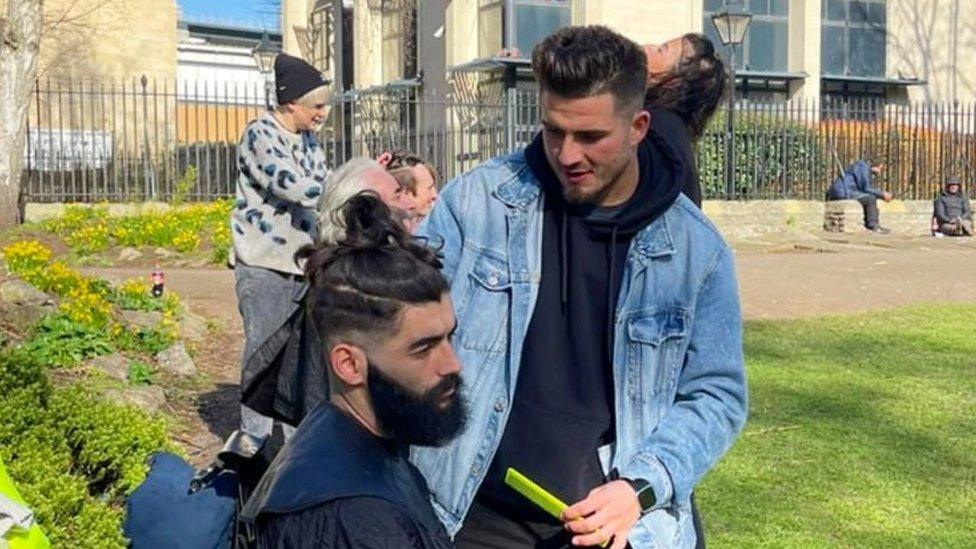
- Published7 October 2022
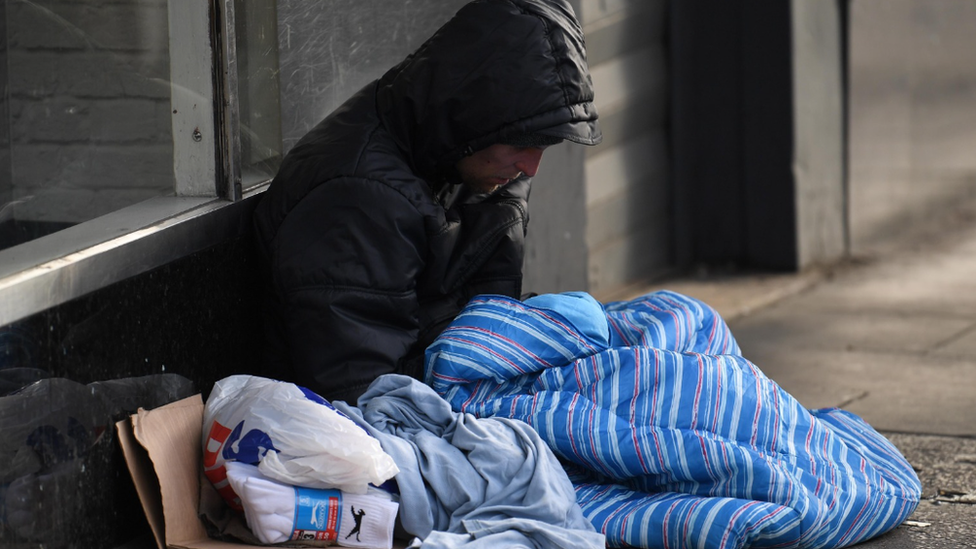
- Published1 October 2022
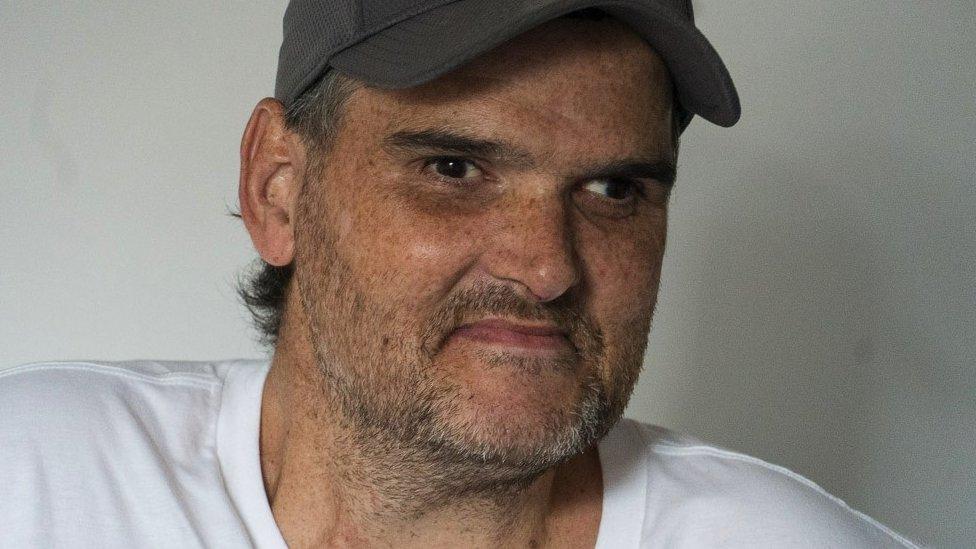
- Published8 January 2022
